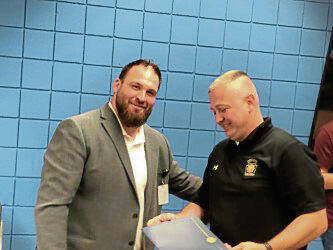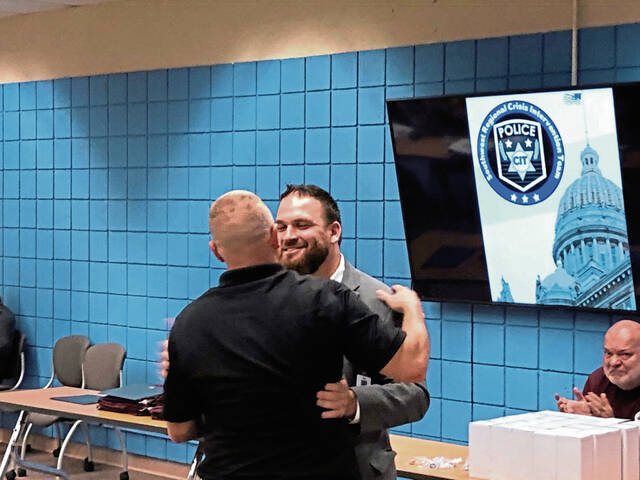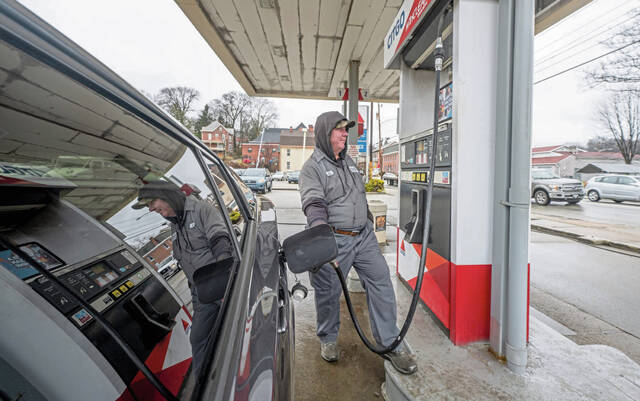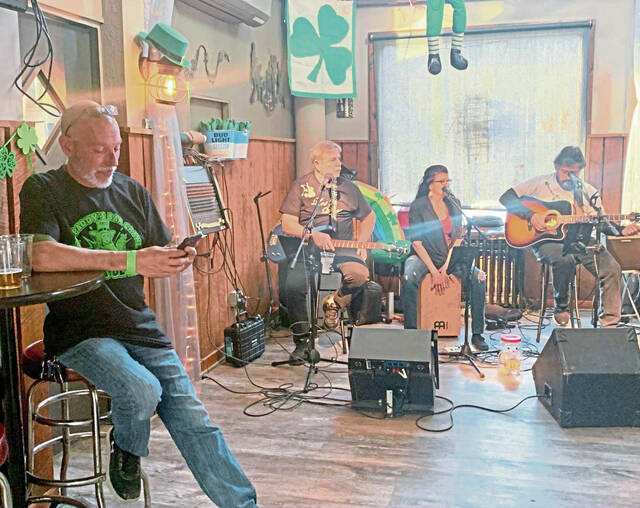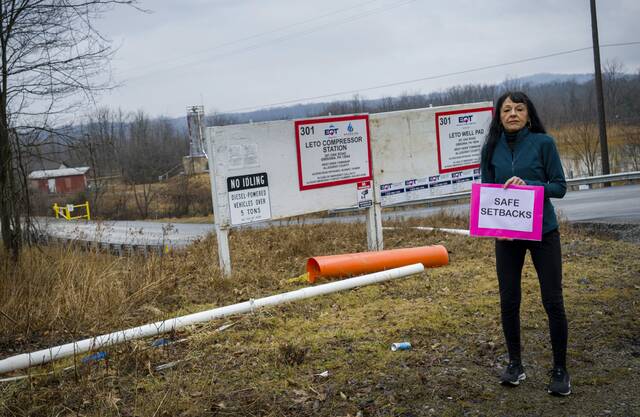Rob Hamilton was a troubled young man.
He struggled with homelessness and drug abuse during his formative years and, upon returning home from military service, couldn’t stay out of trouble.
It wasn’t until he reunited with then-Blairsville police Officer Robert “B.J.” Shaw that Hamilton’s life changed. Shaw, rather than shuffling a then-22-year-old Hamilton off to jail, got him the help he needed to reform his life.
More than a decade later, Hamilton, Westmoreland County’s director of human services, was there to watch Shaw graduate from a program that teaches police officers how to respond to and help community members who are dealing with mental health issues and drug addiction in place of making an arrest.
“I didn’t even know he was in the training,” Hamilton said of the weeklong county-sponsored Crisis Intervention Team training program at Westmoreland County Community College near Youngwood.
More than two dozen police officers and public safety officials from throughout the region, including police departments in Greensburg, North Huntingdon, Murrysville and Penn Township, participated in classes to help law enforcement recognize mental illness, dementia and other cognitive issues and provide training and legal seminars in proper intervention techniques to serve as a substitute for arrests and incarceration.
Hamilton last summer was appointed the county’s director of human services and oversees all local social service programs, including the children’s bureau, behavioral health, aging and veteran programs, as well as the drug overdose task force.
The 35-year-old Upper Burrell resident believes he would have been a client of some of those services a decade earlier. A troubled teen who struggled with drug use, Hamilton enlisted in the military in an effort to turn his life around. An accident involving an exploding machine gun before his return to civilian life led to a relapse and even failed attempts to end his life, he said.
“I was prescribed pain pills, and it started all up again. I started selling and using drugs and ended up homeless and sleeping in tents,” Hamilton said. “B.J. Shaw caught me and, instead of arresting me, he got me help. I went into treatment more than 10 years ago and have been clean ever since.”
Hamilton said he had a spiritual awakening while in rehab, went back to school, starting working as a drug and alcohol treatment counselor and with other human service programs, and eventually was elected to the Lower Burrell City Council before taking over the role of running the county department.
Hamilton said it was Shaw who turned his life around by doing what essentially the crisis intervention program teaches today.
Shaw now works as a patrol trooper for the Pennsylvania State Police and is based in Indiana County. He agreed that the crisis program is one that will benefit all law enforcement officers.
“Rob, as a kid, was a pain in the ass when I worked for Blairsville. He had a troubled past and was a user and was always on my radar. You could tell he was troubled more than he was an addict. I thought I’d rather see him get help than get arrested, and I went out of my way to get him help,” Shaw said.
Shaw said crisis intervention is needed in the law enforcement community and wants to take back what he learns to fellow troopers.
“I’ve been doing it. What they are trying to do isn’t perfect, but it is awesome. We see people at their worst and people who are dealing with mental health illness. We have to learn about the resources available to them. There are things I wasn’t aware of,” Shaw said.
Bobby Tanyer, a behavioral health adult program specialist for Westmoreland County, said the 40-hour course caters to police officers and other members of the public safety community.
It’s a program that has been ongoing for nearly a decade but has seen renewed interest in recent years.
“This is our biggest program to date,” Tanyer said. “This teaches law enforcement and first responders how to deal with mental health issues, drug and alcohol addiction, and helps them refer them to services they need rather than arresting them.
“It promotes officer safety and reduces the stigma of mental health and helps to normalize it,” Tanyer said.
Shaw’s work with Hamilton a decade earlier is essentially what was being taught last week.
“B.J. saved my life because he gave me an opportunity instead of a charge,” Hamilton said. “What B.J. did for me is what we want police to do for everyone.”


